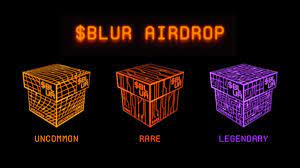Scammers continue to scam nonfungible token (NFT) consumers who use many fake websites to sign up for Blur token airdrops.
According to TrustCheck data, customers who unknowingly linked their wallets to fraudulent websites had more than $300,000 stolen from them.
The three-phase airdrop reward program of the legitimate Blur platform, a newcomer to the NFT market, has directly contributed to the platform’s explosion in user numbers and trading volumes. Users who participated in the second token airdrop, which began on 15 February, received 10% of the total token supply of Blur based on their trading behavior.

Everybody who had traded an NFT on Ethereum in the six months preceding the platform debut in October 2022 received tokens in the first airdrop, which was retroactive. The third airdrop distributed tokens to users who put bids on the site after the functionality went live, whereas the second airdrop distributed tokens to users who owned NFTs prior to the 6 December date indicated.
Several users across the whole NFT ecosystem have wished to claim $BLUR tokens due to the mechanics of the incentive program. This gave con artists the chance to spread false airdrop links to harmful websites.
TrustCheck, an Ethereum-based Web3 browser security extension, has released data with Cointelegraph showing that since 15th February, more than $300,000 in cash has been stolen from 24 separate scam websites. Several of these websites still exist and caution visitors against connecting their wallets.

When users connect their ETH wallets, the websites’ smart contracts instantly initiate a transaction. Afterward, all ETH from the wallet is transferred to a particular address, enabling TrustCheck to keep track of the total amount of money that has been taken so far.
TrustCheck alerts Web3 users to potentially fraudulent websites and smart contracts by flagging suspicious transactions.
Due to rumors of customers using NFT wash trading to profit from the token airdrop incentive program, Blur is also receiving attention. Nonetheless, Blur’s NFT trade volumes appear to be legitimate, according to data research on Dune conducted by data scientist Hildebert Moulié.
The internet is riddled with fake websites, and phishing scams as con artists continue to try to steal money using Web3 technology. In February 2023, a URL mimicking the ETH Denver conference website was linked to a phishing wallet address that has taken more than $300,000.
Late in 2022, scammers used phishing websites to prey on FTX investors in an effort to recover money lost due to the collapse of the failing cryptocurrency exchange.




